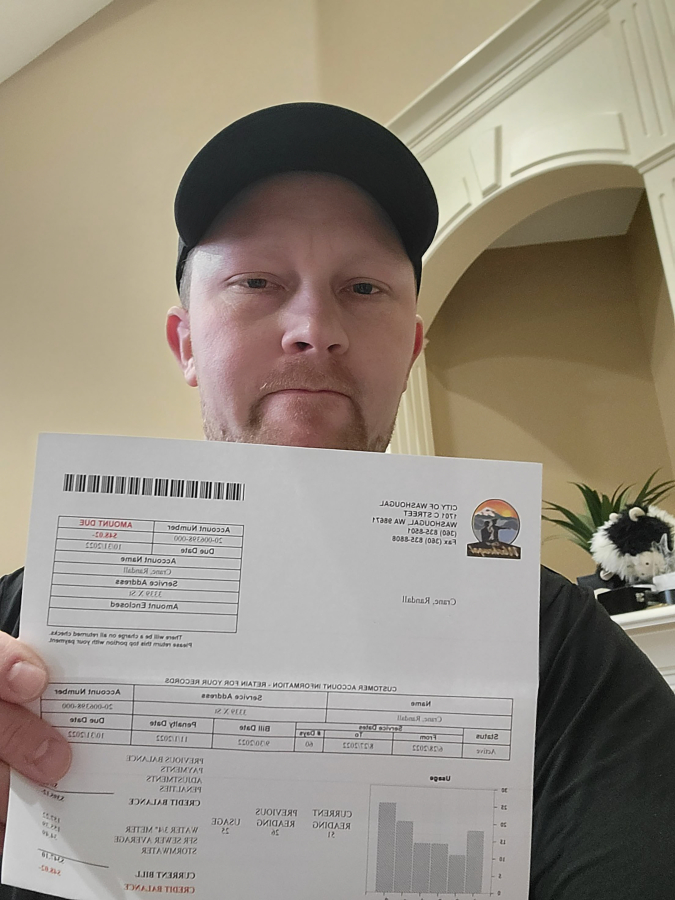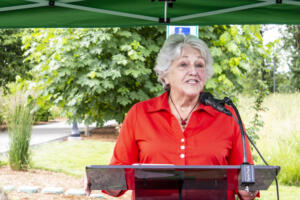Randall Crane initially shrugged off warnings from his neighbors about his water bills when he relocated to Washougal from Battle Ground in 2017. “I only moved 15 miles,” he told himself. “It can’t be that bad.”
It was that bad, as things turned out — his first few bills were “noticeably higher” than they were in his previous city. But as the number on his bill continued to steadily increase during the next few years, Crane discovered that he wasn’t dealing with an isolated issue, such as a leak or increased water usage. Almost everyone he talked to was experiencing the same thing.
“My neighbors that just recently moved right behind me literally have ‘supercars’ — a Lamborghini and an Aston Martin,” Crane said. “I was talking to (one of them), and he’s like, ‘I always drive my car over to my shop in (Vancouver) to give it a wash because I can’t afford the water out here.’ I was like, ‘Dude, you drive a $300,000 car, and you can’t wash it at your house because you can’t afford the water?'”
That’s just one of many anecdotes that spurred Crane to launch a community effort that’s demanding “fair” utility rates and billing practices from the city of Washougal, which has received many complaints during the past several years about excessively high bills for water, stormwater and sewer services.
“I don’t know what the answer is, but I feel like (the city) can do something,” Crane said. “I mean, just saying, ‘Your water bill $700, tough luck,’ that’s not realistic. When you go to buy a car, it’s like, ‘Well, I can’t afford the Mercedes, so I’m going to go look at the Kia.’ With water, (there is no other less-expensive option). You either pay (the bill) or they’ll turn your water off.”




